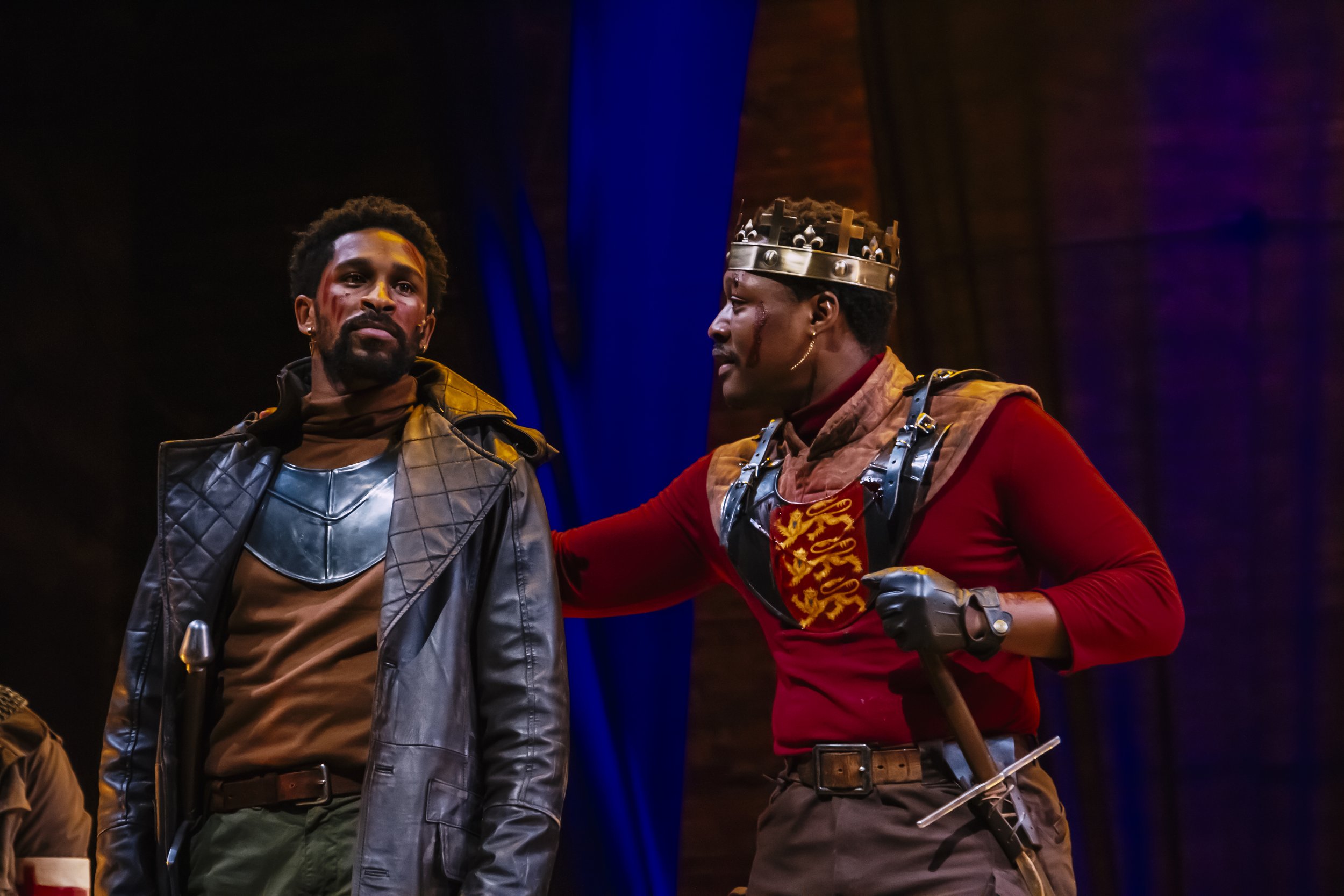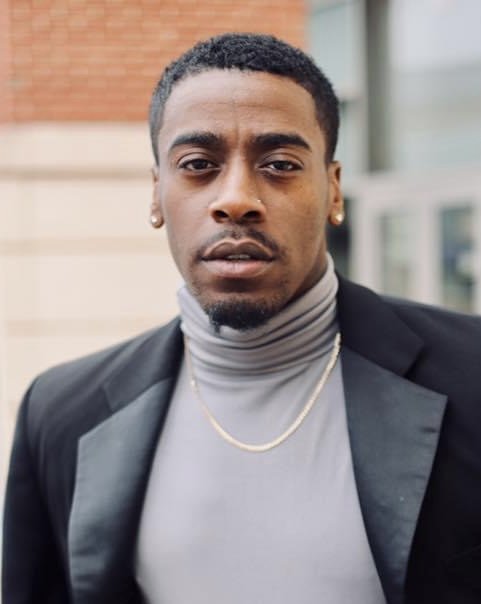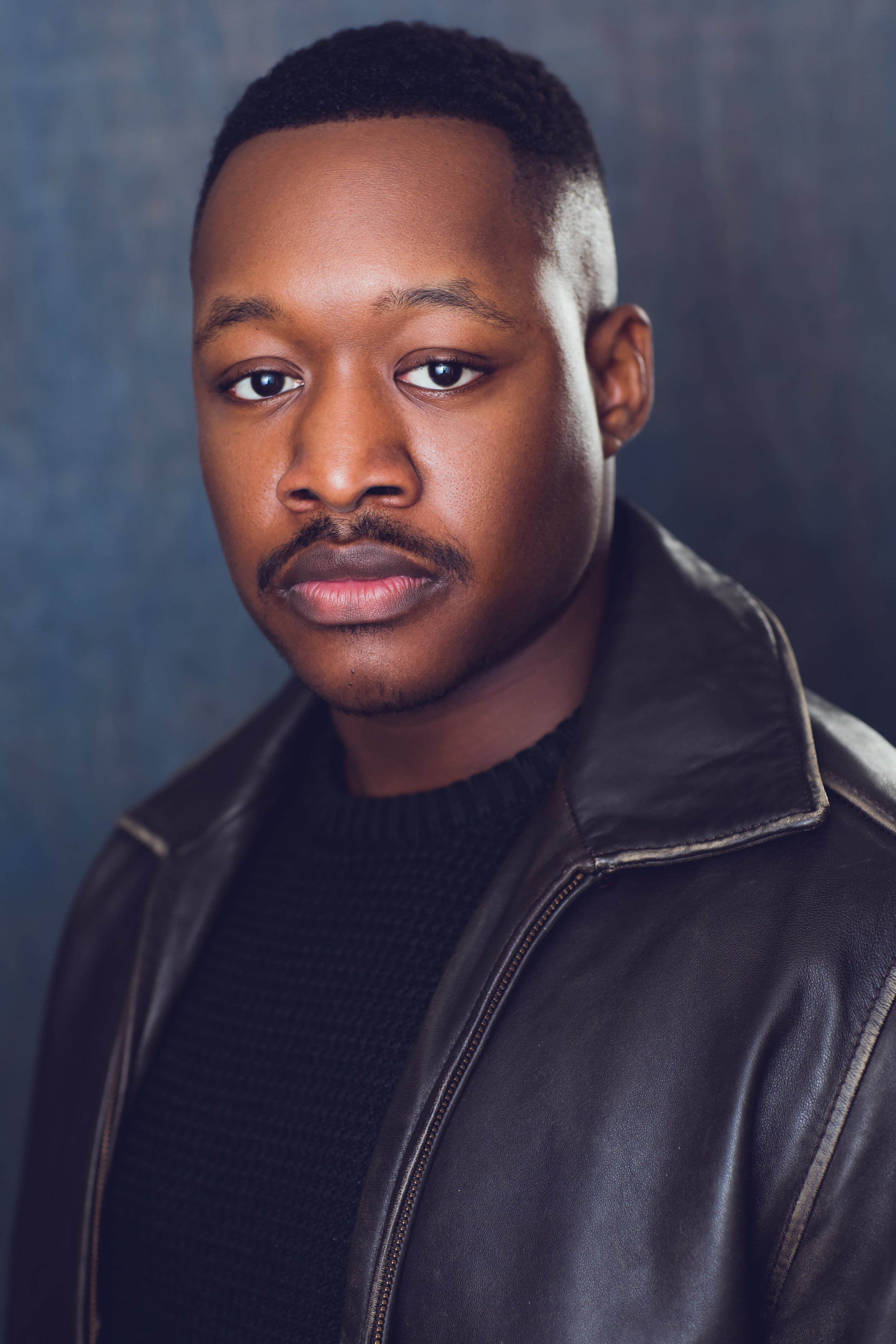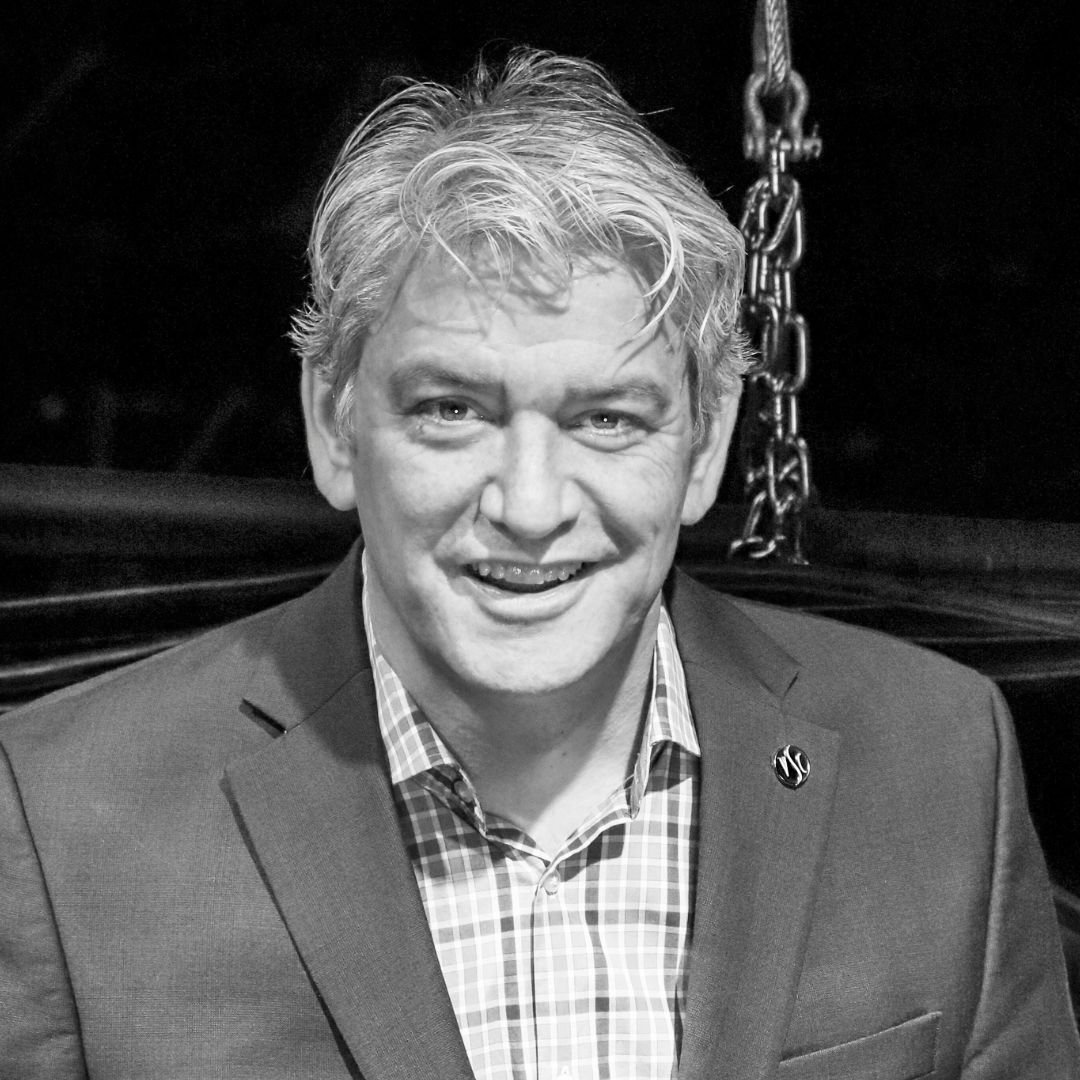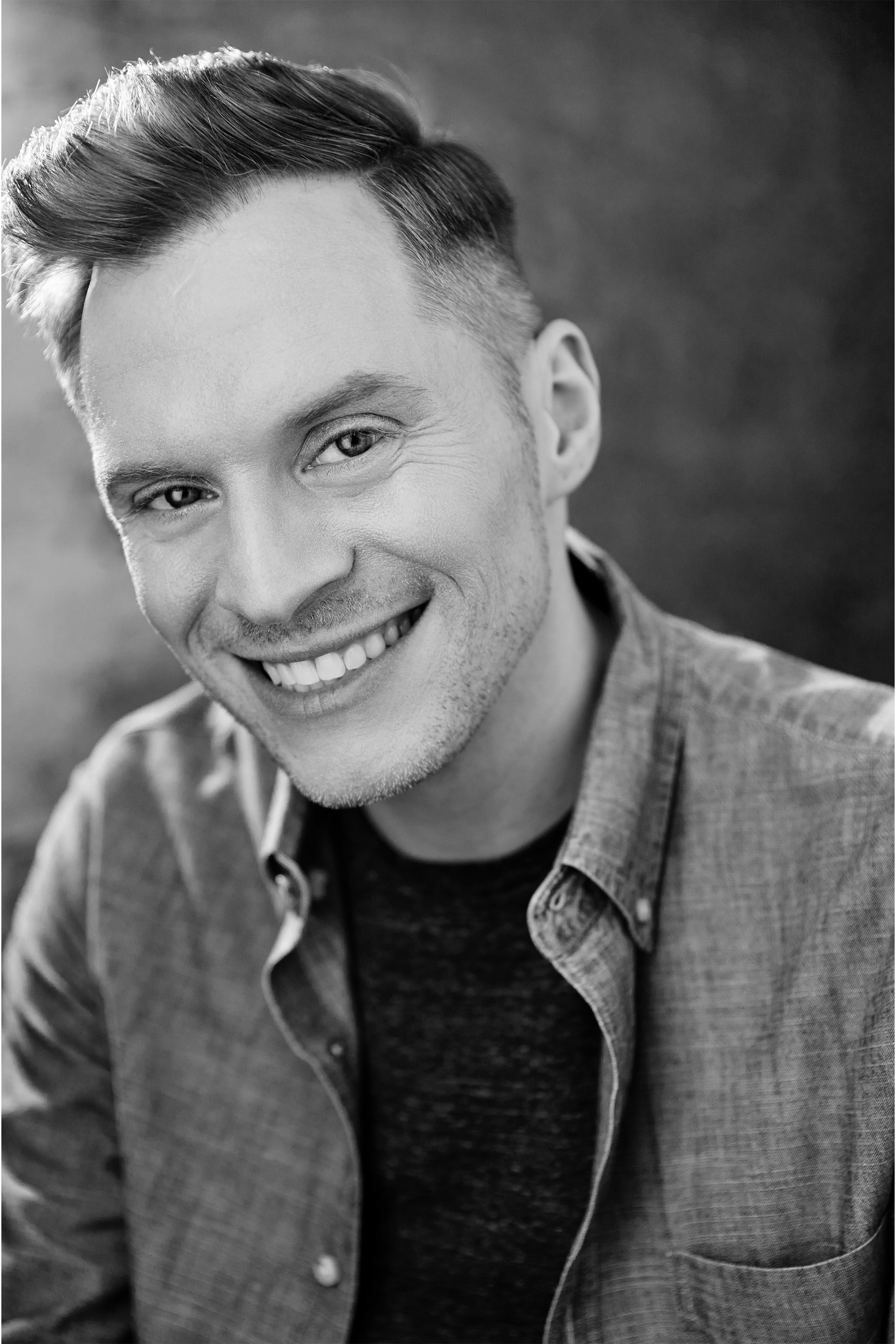NORFOLK — “O for a muse of fire” to properly praise this ambitious, wise, contemporary-in-spirit, production of Shakespeare’s best-loved history play by Virginia Stage Company and Norfolk State University.
It stars invincible NSU and Brown University acting alum Christopher Marquis Lindsay at the perfect age, physique and point in his burgeoning career to embody England’s warrior king in the last (1599) of what’s known as the bard’s second tetralogy. This quartet of plays includes “Richard II” (about Harry’s father Bolingbroke’s usurpation of the throne to become Henry IV); “Henry IV, Part One” (about Harry’s, a.k.a. Hal’s, misspent youth hanging out with Falstaff); “Henry IV, Part Two”(more Hal and Falstaff); and our play “Henry V,” about Hal/Harry’s own kingship and conquest of France).
Derrick Moore, left, as the Duke of Exeter and Christopher Marquis Lindsay as Henry in "Henry V" at the Wells Theatre through April 30. (Samuel Flint)
Shakespeare buffs will recognize “O for a muse of fire,” as the prologue/chorus’ opening line which is replete with similar “greatest hit” speeches (e.g., “Once more unto the breach, dear friends, once more” in Act 3; “We few, we happy few, we band of brothers…” in Act 4 and “A little touch of Harry in the night,” also Act 4. The great speeches have thankfully been preserved in this judiciously cut version.
Though “O for a muse of fire” was nicely performed on April 13 by NSU alum Terrance Livingston, Jr., Livingston will cede that part to the play’s director Tom Quaintance at selected performances (check with the box office). Other illustrious former Spartans in the show include Derrick Moore as the Duke of Exeter; Corey Edward as Earl of Cambridge/Michael Williams; and KeeAjah Baldwin as Duke of York/Sir Thomas Grey. The older pros are joined by eight current students, some playing major roles such as Princess Katharine (Vania Aursby, who’s already made her mark locally at the Generic and Old Dominion University Rep.)
Add in a good handful of local and imported VSC regulars — e.g., Ron Newman as King of France/Sir Thomas Erpingham; Jeffrey Haddock as the insufferable Dauphin (who first appears, hilariously, with the other French nobles in the tony Wells’ box seats); and Julian Stetkevych as Canterbury/Fluellen/Orleans)—and you have two armies’ worth of actors on a mostly bare, intentionally rough-hewn looking thrust stage, created by designer Dahlia Al-Habieli. The open-to-view under-thrust doubles nicely as siege trenches or “mines.”
Costumes by resident designer Jeni Schaefer are well-worn contemporary outdoor garb, occasionally embellished with low-tech coats-of-arms ribbons or torn, dirty armbands to help keep double-and triple-cast actors identifiably English or French. Women actors Sarah Manton (Montjoy/Hostess), Meg Rodgers and Anna Sosa play both genders, Rodgers stepping up as the feckless corpse-robbing Pistol and Sosa as the acne-challenged Bardolph.
The latter two n’er-do-wells, plus Nym (Miguel Girona), are part of what one might dub “Team Falstaff,” the group of lowlifes with whom then-Prince Harry hung out in his youth. When “Henry V” begins, Falstaff is a bed-ridden offstage character suffering from his life of drinking, whoring and Prince Harry’s stunning rejection of his company in “Henry IV, Part 2.”
Falstaff expires, still unseen, in Act 2, with only the Hostess (Manton) to witness and skillfully convey the manner of his going: “For his nose was as sharp as a pen,” [odd for a notoriously fat man] and he “babbled of green fields.” Perhaps his last moments were, after all, some bucolic dream. With Falstaff gone, the audience watches to see how King Harry will treat his former buddies from Team Falstaff (Pistol, Bardolph, Nym, etc.). He consistently shuns them, in some of the play’s coldest, but, as we’re made to think, necessary moments.
The play — in fact, the whole tetralogy — invariably comes down to how audiences judge this Henry’s all-important character. Henry at any age can be cruel — indeed the historical Henry V, according to most historians and critics such as Herschel Baker, was by no means a charmer. But Shakespeare’s Henry V is, and, perforce, must be one, since the whole second tetralogy leads up to his miraculous victories at Harfleur and, especially, Agincourt.
In this play, Shakespeare reaches the heights of his patriotic theme: England now and forever. And Henry V, warts and all, IS England, sometimes mistaken (the scenes in which corrupt bishops support Henry’s genealogical claim to the French throne via Edward the Black Prince and Salic law are comically obtuse), but always, somehow, winsome. That’s because Henry V, even when he’s hard (ordering French prisoners to be killed or allowing a miscreant such as Bardolph to be hanged) is consistently self-questioning, self-effacing (especially with his betrothed, Kate) and patriotic.
Julian Stetkevych, right, and the cast of "Henry V" playing at the Wells Theatre through April 30. (Samuel Flint)
That’s why the play was so popular during World War II. Laurence Olivier’s 1944 film adaptation fit its times; Kenneth Branagh’s heroic 1989 film aspirationally still fits ours.
The play is always being done somewhere where English (and a bit of mangled French) is spoken or translated. And speaking of the brief French scenes, NSU theatre’s producing artistic director Anthony Mark Stockard served as voice and speech coach with no other dialect or French coach listed.
The actors’ French was somewhat rough (sometimes part of the plot), but it always flowed — the theatrical illusion of fluency (e.g., for the French Princess Katherine) being far more important than linguistic accuracy. Perhaps more could have been done to suggest Fluellen’s Welsh accent (Irishman MacMorris and Scotsman Jamy having been cut from the play). One loses thereby Shakespeare’s comic interplay of U.K. subcultures.
But never elided is the other glorious theme of this play: theatricality itself – both its limitations and infinite possibilities. “Can this cockpit hold/ The vasty fields of France? Or may we cram/ Within this wooden O the very casques that did affright the air at Agincourt?” The answer is no; of course, you can’t fit thousands of soldiers on a stage. But the answer is also a triumphant yes; you can conjure up such an image in your audience’s imagination, even as you deny it.
In the play’s first moments, Livingston stepped forward to deliver the familiar pre-curtain speech: “We wish to thank our sponsors … ;” “Please turn off your cellphones,” but then … theater happened!
Livingston unexpectedly lifted his voice to speak the famous first words of the show, leaped onstage and took us to where only art can go. As important as historical accuracy may be (the real Henry V probably was a jerk), we got the patriotic, still revelatory “Henry V” we need for today: Shakespeare’s own words, skillfully rendered and triumphantly true. Theatricality conquers all.
Page Laws is dean emerita of the Nusbaum Honors College at Norfolk State University. prlaws@aya.yale.edu

